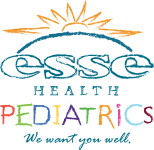Gluten-free has gotten a lot of attention lately with many people deciding to go gluten free to help improve their health. We hear that wheat is harmful to our bodies and avoiding gluten can help with bloating, increase energy and improve symptoms of ADHD and autism, but how do we know if we should believe everything we read and hear.
Gluten is a protein that is found in grains like wheat, barley and rye. For most people gluten is harmless unless you have been diagnosed with celiac disease or non-celiac gluten sensitivity. If you have been diagnosed with celiac disease consuming any gluten can damage the intestines and make it difficult to absorb needed nutrients. It also may cause gas, bloating, diarrhea, and changes in weight. Non-celiac gluten sensitivity can result in the same symptoms but no intestinal damage occurs when consuming gluten. Many people report positive health results when eliminating gluten; however it is not something that is generally recommended unless you have these diagnosed medical conditions.
Following a gluten-free diet can be difficult as gluten is found in many food products as well as other household goods. You will need to carefully read food labels to avoid gluten containing grains- wheat, barley, rye, spelt, kamut, ferro, durum, bulgur, semolina, and triticale. Gluten ingredients can also be found in lip balm, toothpaste and vitamins. Most groceries stores contain specific aisles with gluten free foods so you can feel comfortable purchasing these products and knowing they are free of gluten.
By Rachel Sestrich, RD, LD, CDE
Locations
Pediatric & Adolescent Medicine at Watson Road
9580 Watson Road, Suite A
St. Louis, MO 63126

